Tags :: Thriller
![A Quiet Place [video]](/uploads/articles/quietplace-vid.jpeg)
A Quiet Place [video] (2018)
It’s funny to think of people scratching their heads when this “quiet” film is justly nominated for sound editing and sound mixing Oscars.
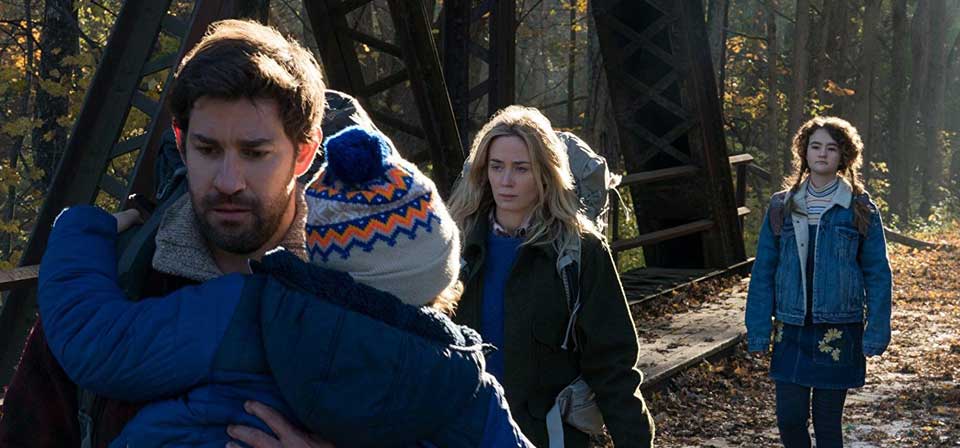
A Quiet Place (2018)
While A Quiet Place is a terrific film just the way it is, I can’t help wishing there were more families like this in other kinds of movies.
![The Shallows [video]](/uploads/articles/shallows.jpg)
The Shallows [video]
“Blake Lively versus shark” is definitely one of the better pitches of this summer.

Witness (1985)
There is not a wasted or unnecessary shot in Peter Weir’s Witness, or a superfluous line of dialogue. Like the great barn-raising scene late in the second act, the film’s construction is both efficient and unhurried, functional and beautiful.
Gravity [video]
Sandra Bullock shines in Alfonso Cuarón’s mesmerizing action thriller in space, a rare Hollywood spectacle with a touch of spiritual awareness.
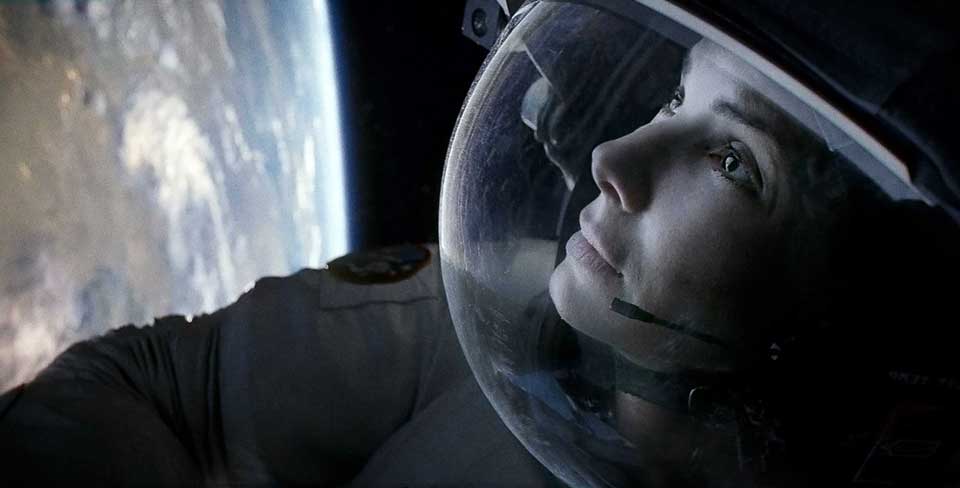
Gravity (2013)
Gorgeous, nerve-racking, literally awesome, Gravity takes us to a world much nearer in both time and space than Duncan Jones’ Moon; nearer even than the layer of satellites that our mobile phones and GPS devices talk to every day: only about 350 miles away, in the low Earth orbit of the Hubble Space Telescope. Roughly the distance from Los Angeles to San Francisco — but oh, that’s far enough.
Argo (2012)
The fact-based premise is almost enough to sell Argo by itself. Argo opens and closes as a tense political spy caper, but it’s also an affectionate send-up of the movie-making process. The old advice to writers to “write what you know” is applicable to movies about movies, from Singin’ in the Rain to The Artist, and few subjects inspire Hollywood — or appeal to movie fans and film critics — more reliably than Hollywood itself.
The Woman in Black (2012)
For Harry Potter star Daniel Radcliffe, who stars as a young solicitor named Arthur Kipps, The Woman in Black is an opportunity to make a reasonably graceful break from the role that has dominated his life since childhood. For the new owners of England’s legendary Hammer horror brand, until recently dormant from the 1970s, it’s an opportunity to stake their claim to continuing in the tradition of Terence Fisher, Jimmy Sangster et al. For curious movie watchers, it’s an opportunity to see how Radcliffe does in another role — and how an old-fashioned haunted house story plays today.
Super 8 [video] (2011)
J. J. Abrams is a skilled storyteller, but has a bad habit of over-promising and under-delivering.
Super 8 (2011)
Gone are the days when a movie like E.T. could open to a mere $11 million, build on word of mouth, and go on to earn more than $350 million in North America. Obviously, Abrams remembers those days. In a way, Super 8 is as derivative and familiar as anything in theaters today, only the movies it’s copying are all over a quarter of a century old: Spielbergian fare like The Goonies, E.T., Gremlins and Close Encounters, with echoes of earlier and later films.
Source Code (2011)
One could almost regard Moon as a warm-up for Source Code. Both films center on a solitary grunt who’s a cog in a much larger machine — an isolated man squirreled away in a cold, metallic space, unable to contact his loved ones, unsure exactly what’s going on, caught up in the seemingly impossible circumstances of a mission he doesn’t entirely understand. Both films raise questions of identity, memory, and human dignity in dehumanizing systems.
Red Riding Hood (2011)
Red Riding Hood is a movie of a sort that I would very much like to see if anyone could make it, which is another way of saying that it is not that sort of movie at all. A real Hollywood fairy tale is the rarest thing in the world. Hollywood is more comfortable with myth and legend. Partly, I think, it’s a matter of scale: Mythology provides the sort of sweeping, epic scope that lends itself to big-screen Hollywood feature filmmaking. Fairy tales are smaller and more intimate, and require a lighter touch.
The Adjustment Bureau (2011)
Part Hollywood romance, part paranoia thriller,The Adjustment Bureau is an enjoyable romp in large part on the strength of Damon and Blunt’s likability and chemistry — qualities notably absent in recent star vehicles like The Tourist and Knight and Day.
The Tourist [video] (2011)
Johnny Depp is a wet blanket, and Angelina Jolie cranks the glamour so high she’s no longer human, in this would-be Charade style light-hearted romantic thriller. (There is one good scene, the boat chase in Venice.)
Sanctum (2011)
The shocking thing about Sanctum’s fictional survival story, relocated to Papua New Guinea, is not that it kills off one expedition member after another, often quite brutally. The shocking thing is how callously it treats their lives. More than one team member is euthanized by his fellows, submerged and drowned after sustaining catastrophic injuries.
Winter’s Bone (2010)
In a backwoods world in the Missouri Ozarks so harsh and unforgiving that it takes one’s breath away, Winter’s Bone finds a heroine who could not exist anywhere else.
Salt (2010)
Salt is tasty in moderation, though you wouldn’t want to make it a big part of your diet.
Night Train to Munich (1940)
If the two British twits on the titular train in Carol Reed’s overlooked, entertaining Night Train to Munich seem to have wandered in from another movie, it’s because they have.
Inception (2010)
Inception is the most audacious and multifaceted Hollywood entertainment for grown-ups I’ve seen in years: a brainy, bravura achievement inviting comparison to the most inspired work of Hollywood visionaries from Michael Mann and Charlie Kaufman to Ridley Scott and the Wachowskis.
The Lovely Bones (2009)
Peter Jackson’s The Lovely Bones paints an unconvincingly ham-fisted, sometimes ridiculous picture of what happens when someone dies. No, I’m not talking about the film’s attempt to portray the afterlife with kaleidoscopic montages of trippy concept art. I’m willing to give the film the benefit of the doubt, there.
The Twilight Saga: New Moon (2009)
Twilight and New Moon are essentially uncritical celebrations of that overwrought, obsessive passion that is the hallmark of immaturity — passion that wholly subordinates all sense of one’s own identity and elevates the beloved to summum bonum, or even the sole good; passion that leaps as readily to suicidal impulses and fantasies as to longing for union.
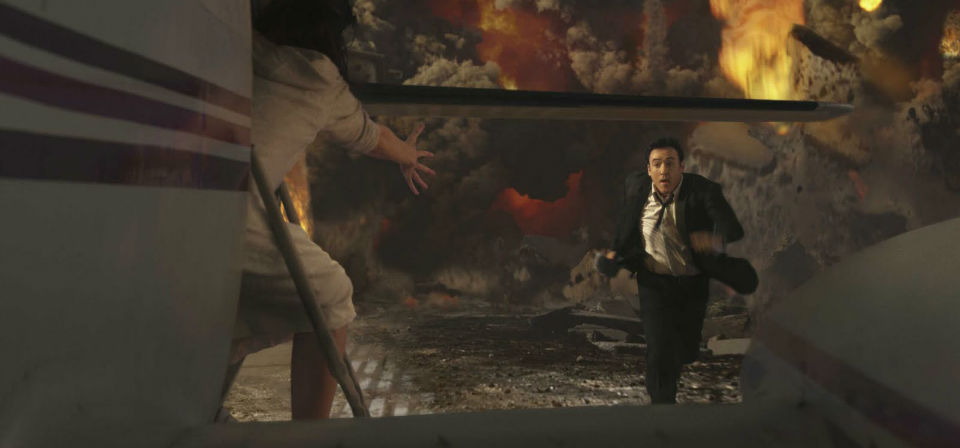
2012 (2009)
Then there’s the scene in which President Glover, as an ecumenical prayer on behalf of the world, starts to recite Psalm 23 — but the transmission cuts out before he can even finish the first line. What, Ejiofor gets to cite Cusack’s crappy fiction again and again, but the president can’t get off one lousy Bible verse at the end of the world? Here is a melancholy thought: How many people in the audience won’t even know how “The Lord is my shep…” ends, or where it’s from?
Moon (2009)
There’s an ambitious modesty to Duncan Jones’s debut film Moon, a smart, existential science-fiction drama with one onscreen actor that runs 97 minutes and goes nowhere more exotic than our planet’s natural satellite.
Taken (2008)
Well-crafted but improbable action set pieces cast the 56-year-old Neeson as an essentially indomitable force taking on and prevailing against almost any number of gun-toting assailants — like Jason Bourne, Bryan combines boundless resourcefulness with essentially indomitable physical prowess — but the film’s emotional force rests on the comparatively persuasive setup.
Burn After Reading (2008)
Burn After Reading reminds me a little of the Darwin Awards. It’s morbidly absurdist, thoroughly pointless, and can certainly be funny at times, even acutely so, with a freakish bathos that can be hard to look away from. But if you don’t feel a little queasy for laughing, and perhaps you should, you might at least feel bothered that someone wanted to put the whole thing together for your amusement.
The Wicker Man (2006)
What do you get if you take Robin Hardy’s cult classic The Wicker Man, and then take out religion and sex? And folk music? That’s the question writer-director Neil LaBute (Nurse Betty) sets out to answer in his 2006 remake of The Wicker Man. After watching the film, I’m still unsure of the answer.
The Wicker Man (1973)
Is The Wicker Man anti-Christian? Anti-pagan? Anti-religion? Where are its sympathies? Does it have any? Like baffled, blustering Sergeant Howie, blundering about the clannish Summerisle community trying to investigate a missing child, we are asking the wrong questions, assuming the wrong rules, wandering ever further off course, walking into a trap.
The Spiderwick Chronicles (2008)
The Spiderwick Chronicles is a smart, scary fantasy family thriller that offers depth and meaning in a genre littered with mere competent entertainment. Where films like Zathura and Night at the Museum offer roller-coaster excitement but little more, The Spiderwick Chronicles is actually about something.
The Brave One (2007)
It’s a movie in which every slimeball Erica encounters menaces her with remorseless, repulsive sadism — there’s never anyone who just has a lewd comment, say, or even just wants to steal her purse. Everyone wants to bludgeon or shoot her, mutilate and molest her, enslave her, run her over, what have you.
Sunshine (2007)
For an hour or so it threatens to be one of the best movies of the year, but in the end, despite sci‑fi razzle-dazzle and some undeniably powerful images, Sunshine ultimately settles for puzzling rather than mysterious.
Children of Men (2006)
It is a truism that every childbirth is a miracle. Children of Men sets that truism in sharp relief, envisioning a world in which a single ordinary conception, pregnancy and childbirth seems almost as miraculous — and portentous — as a virgin birth.
Déjà Vu (2006)
If it isn’t the brilliant film it could have been, Déjà Vu still contains enough flashes of that film to make it entertaining while you’re watching it. On reflection, though, it feels a bit like a shell game in which the conjurer himself has lost track of where the pea is supposed to be.
The Prestige (2006)
The Illusionist is essentially a rationalized fairy tale with a hero, a villain, a princess, and true love. The Prestige — like Nolan’s earlier puzzle movie, the celebrated Memento — is a brilliantly interconnected but chilly mechanism in which each element is a carefully integrated part of the whole, but the effect of the whole is somewhat alienating.
The Treasure of the Sierra Madre (1948)
Riveting, downbeat, and full of surprises, John Huston’s The Treasure of the Sierra Madre is both a gripping adventure and one of Hollywood’s best and most resonant morality tales, a smart and remorseless story of gold, greed, guns, and guile in the mountains of Mexico.
The Illusionist (2006)
A moody, atmospheric fairy tale, The Illusionist is the story of one illusionist — Eisenheim, a fictional turn-of-the-last-century magician — being told by another, writer-director Neil Burger ( Interview with the Assassin).
Monster House (2006)
In a way, Monster House is a bracingly icy breath of fresh air, a tween-oriented family film that is unabashedly out to frighten.
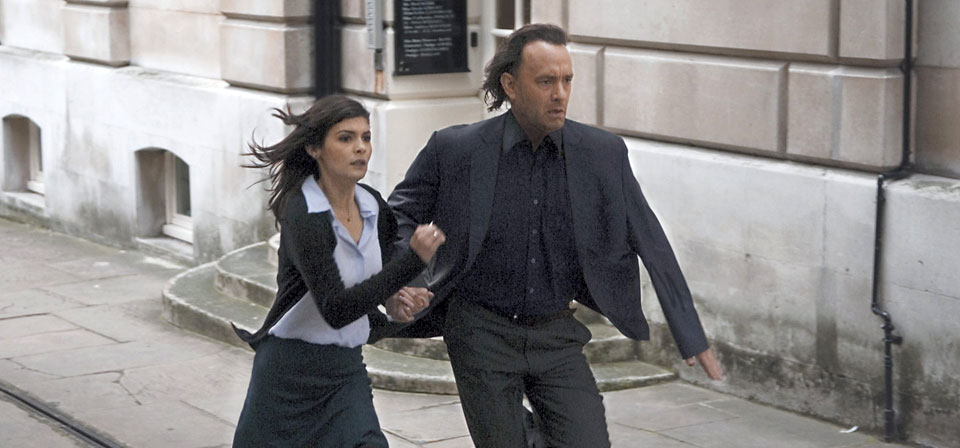
The Da Vinci Code (2006)
Is The Da Vinci Code anti-Catholic? Well, if it isn’t, then we must simply conclude that no such thing as anti-Catholicism exists, or at least that no anti-Catholic movie has ever been made.
Inside Man (2006)
Inside Man opens with a challenge from criminal mastermind Dalton Russell (Clive Owen) to the viewer to try to keep up as he lays out the labyrinthine details of his perfect crime. “Pay strict attention to what I say, because I choose my words carefully, and I never repeat myself,” he warns with smug complacency.
Tsotsi (2005)
Tsotsi seems almost entirely severed from human values, and his seemingly total moral apathy rattles the conscience-stricken Boston. “Decency, Tsosti,” Boston harangues. “Do you know the word?”
Confession (2005)
Reverent, well directed, and well acted by a respectable cast including Bruce Davison, Tom Bosley and Peter Green, Confession’s weakness is also its promotional gimmick: Meyers directed the film at 24, but wrote the screenplay ten years earlier as a student in a Catholic boarding school.
Jaws (1975)
Steven Spielberg’s breakout hit is a perfect storm of primal fears (man-eating predators, the unseen, the ocean), shrewd, emotionally riveting direction combined with sympathetic lead performances, and that classic two-note theme from John Williams’ edgy score.
Batman (1989)
Critics adored Batman for its eccentric, Burtonesque take on a pop-culture icon, for its moody, noirish gothic art-deco Gotham City, and of course for Jack Nicholson’s showy performance as the Joker. Comic-book fans, meanwhile, appreciated the film for rescuing the Dark Knight from the over-the-top camp comedy of the 1960s series and making him suitably dark and brooding. For all that, though, the film’s flaws are hard to overlook.

Wallace & Gromit: The Curse of the Were-Rabbit (2005)
Stop-motion animation cult heroes Wallace & Gromit, the brainchildren of British animator Nick Park of Aardman Animations, may not be unchanged in the transition from their charmingly dotty, wildly funny shorts to their first feature-length film, but they’re still recognizably themselves.
The Three Musketeers (1921)
Danny Kaye in that classic swashbuckling satire The Court Jester may well have been thinking of the great Douglas Fairbanks when he described his own character with the words: “He never walks when he can leap, he never flees when he can fight. He lives for a sigh, he dies for a kiss, he lusts for a laugh!”
Forbidden Planet (1956)
At once intelligent and campy, Forbidden Planet is an intriguing, perhaps overrated sci-fi classic that borrows plot points from Shakespeare’s The Tempest and strongly anticipates “Star Trek” in its sci-fi milieu — but its driving fears are the “monsters from the id,” the wayward, concupiscent passions of our own hearts.
Corpse Bride (2005)
As imagined by Tim Burton in stunning, wildly stylized stop-motion animation overtly reminiscent of The Nightmare Before Christmas yet technically far beyond it, this macabre fairy tale becomes, variously, a poignant meditation on the daunting weightiness of the vows of marriage, a raucous danse macabre in jumping jazz rhythms and florid colors, a visually rich celebration of Edward Gorey Gothic-Victorian and Charles Addams grotesque, and, perhaps most surprisingly, a touching portrait of tragedy, doomed love, empathy, and sacrifice.
The Exorcist (1973)
“You just take your pills and you’ll be fine, really,” Chris (Ellen Burstyn) promises her daughter Regan (Linda Blair), but part of the film’s brief is that pills aren’t the answer to everything, and faith and religion may have answers science doesn’t.
The Exorcism of Emily Rose (2005)
A line in the trailer for The Exorcism of Emily Rose, felicitously cut from the final film, observes that “There’s no pill for the devil.” More to the point, there’s no diagnostic test or scan for him, either.
Ladder 49 (2004)
A strongly Catholic milieu is a mixed blessing. On the one hand, there are church weddings, baptisms, funerals, and Christmas Masses. On the other hand, the hero and heroine (Jacinda Barrett), who will later marry and have children, wind up in bed after a night of heavy drinking, and a borderline sacrilegious hazing stunt simulates the sacrament of penance. Ladder 49 doesn’t ask us to accept its characters as saints, but it does argue that, whatever their faults, they deserve to be honored as heroes.
Constantine (2005)
The comic-book Constantine is a blond Brit based in Liverpool (think Sting by way of Christopher Lee in Terence Fisher’s The Devil Rides Out). For the film, the casting of Keanu led to a change of setting to California and LA. Similarly, the casting of Shia LaBeouf (Holes) as Constantine’s ally Chandler turned the character from a seasoned comrade in arms into a Jimmy Olsen-like junior sidekick. (Whatever happened to casting actors who fit the part?)
The Forgotten (2004)
I Confess (1953)
Hitchcock’s underrated I Confess may or may not not quite rank with his greatest masterpieces, but it offers perhaps the most compelling variation on the director’s favorite theme, the innocent man wrongly accused.
Red Dragon (2002)
Now, with Red Dragon, based on the novel in which Lecter first appeared, the series has come full circle. In Silence, we saw Lecter escape from prison; here we see him captured by FBI profiler Will Graham (Ed Norton, The Score). While the humorous note introduced by Hannibal continues to be a factor, an effective prelude reestablishes Lecter as a frightening psychopath who’s willing to kill innocent and likeable characters.
The Sixth Sense (1999)
A ubiquitous tagline and a mind-bending climactic twist made M. Night Shyamalan’s breakout hit The Sixth Sense a monster sensation — yet this deliberately paced, psychologically sensitive paranormal thriller is much more than a one-trick puzzle movie, and holds up well to multiple viewings.
High Noon (1952)
A mounting sense of dread and inevitability hangs over Fred Zinnemann’s grim, downbeat Western classic High Noon, a black-and-white anti-spectacle about an aging lawman who receives a series of nasty shocks on the day he tries to hang up his gunbelt and begin a new life.
The Village (2004)
With The Village, Shyamalan has gone to the well once too often. Whether or not you see the anti-climactic twists coming is almost beside the point. For the first time, Shyamalan has created a puzzle movie populated by characters we can’t identify with, living in a world we can’t relate to. The viewer has no stake in this story; he comes to the Village a stranger in a strange land, and remains so through the course of the film.
The Bourne Supremacy (2004)
Jason Bourne (Matt Damon) has come a long way since he was fished out of the ocean with a pair of bullet holes in his body and even bigger holes in his memory. His past is still a blank, mostly, but he’s finally fully in command of his devastating training and skills as a CIA black-ops agent. These days, when he kicks into high gear, it’s by design, not reflex.
Man on Fire (2004)
"In the Church they say to forgive," one character observes dubiously. But in Creasy’s book, to forgive is divine, to mutilate and butcher human. "Forgiveness is between them and God," he says, conveniently overlooking the relevant biblical injunctions even though we know he can quote chapter and verse when he wants to. "My job is to arrange the meeting." We know we should agree with Creasy, because his murderous rampage is scored by a cool rock soundtrack and sanctified by a mother’s kiss. That’s got to be righteous.
The Missing (2003)
In place of Ford’s iconic but Indian-hating cowboy hero, Howard gives us two white protagonists who are each, in their own ways, the antitheses of the John Wayne character.
Vanilla Sky (2001)
Like puzzle movies from Memento to Fight Club, Vanilla Sky is a riddle wrapped in a mystery inside an enigma. The problem is, the mystery and the enigma are in one movie, and the riddle’s in an entirely different movie — in fact, in an entirely different genre of movies.
The Silence of the Lambs (1991)
Lecter fascinates us because he embodies qualities that we associate with civilized, reasonable existence, yet he is murderously sociopathic. In our therapeutic age, he’s a shocking reminder that, beyond all psychobabble about “behavior modification” and the like, there remains the sheer reality of good and evil. The doctor is in: God help us all.
Nosferatu: A Symphony of Horror (1922)
Though diminished by decades of pop-horror incarnations, the vampire remains uniquely evocative of both dread and fascination, horror and seductiveness. Monsters from werewolves to Freddy Krueger may frighten, but neither victims nor audience are drawn to them. By contrast, the vampire suggests the horror of evil working on our disordered passions.
The Cell (2000)
The Cell gives imaginative and visual shape to as it were the very soul of misogynism, perversion, depravity, sadism, and the supreme nihilism and egotism of the damned. The film also has some images of beauty, peace, and serenity; even some Christian symbolism — but all this is quickly overwhelmed, even betrayed and subverted, so that the dark themes dominate the film.
Hannibal (2001)
As directed by Ridley Scott (Gladiator), Hannibal is stylishly mounted and has its entertaining moments. Ultimately, though, it’s like most horror movies: repellent where it should have been frightening, and, in the end, uninvolving and hollow. So many characters suffer such ghastly things, yet none of it seems to matter much.
Something Wicked This Way Comes (1983)
This line from Macbeth, quoted by small-town librarian Charles Halloway (Jason Robards), perfectly evokes the unsettling milieu of Ray Bradbury’s dreamlike thriller about a creepy carnival coming to a small Illinois town. Significantly, this line is immediately followed in the film by the following verse from Longfellow, also quoted in the book:
What Lies Beneath (2000)
But when the plot then descends into a Lethal Weapon-type action-chase scene, it’s clearly gone off the rails: a proper ghost story has an entirely different atmosphere from a Lethal Weapon action flick.
The Big Sleep (1946)
The dialogue is hard-boiled and crackles with wit, the plot is fast-paced and nearly impenetrable, and Humphrey Bogart is coolly unflappable in Howard Hawkes’s stylish noir classic The Big Sleep, based on the Raymond Chandler novel.
Signs (2002)
Signs has the
heart that was lacking in Unbreakable, but stumbles badly
in its treatment of the paranormal, in this case the world of
"X-Files" / "Twilight Zone"
Matchstick Men (2003)
When his supply of meds unexpectedly dries up, Roy predictably disintegrates, much to Frank’s concern. Soon, though, Roy is seeing a psychiatrist (Bruce Altman, Changing Lanes), who not only provides the medication he needs, but gets him talking and thinking about his life — in particular the woman who walked out on him fourteen years ago, and whether or not she was pregnant at the time.
Charade (1963)
Often described as "the best Hitchcock movie Hitchcock never made," Charade stars Cary Grant and Audrey Hepburn in a sparkling thriller with overtones of screwball romantic comedy — or is it the other way around?
Phone Booth (2003)
Phone Booth takes the formula of Die Hard and Speed, in which the protagonist is trapped in a confined space by a wily psychopath with whom he communicates only by phone (or walkie-talkie), to its narrowest physical dimensions yet.
The Game (1997)
(Written by Robert Jackson) What do you get for the man who has everything?
Narc (2002)
(Written by Robert Jackson) Narc is trying to be something. Really hard. It’s obvious. The question is: What is it trying to be?
National Security (2003)
Martin Lawrence rants endlessly against the White Man and Steve Zahn tries to endure him in the obnoxious odd-couple action-comedy National Security (Columbia), directed by Dennis Dugan.
John Q (2002)
John Q, which is sort of the moviegoing equivalent of being taken hostage, was directed by Nick Cassavetes (She’s So Lovely). Cassavetes — like the film’s hero, John Q. Archibald (Washington) — has a child in need of a life-saving organ transplant. I feel for the director, and for his hero. I cannot condone the actions of either.
The Quiet American (2002)
If Greene is no longer interested in subjecting his protagonist’s guilt to judgment, he’s not interested in rationalizing it either. It’s simply a fact in a morally and emotionally complex story of two very different but flawed Westerners living in 1950s Vietnam in the last days of French colonialism and the dawn of Vietnamese Communism.
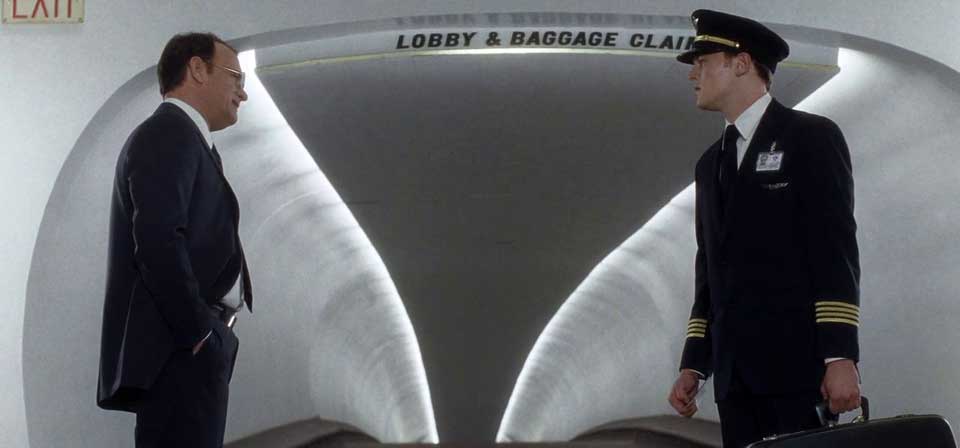
Catch Me If You Can (2002)
The week after I graduated from high school, I went through a second high-school graduation at a neighboring high school, using a fictitious name. For no particular reason — just as a lark.
The Recruit (2003)
Of course we don’t really know a whole lot about the CIA, but The Recruit has fun guessing. Directed by Roger Donaldson, who’s helmed the superior thrillers No Way Out (1987) and Thirteen Days as well as action schlock like Species and Dante’s Peak, The Recruit takes us into the Farm, thought to be the name of the CIA’s top-secret training facility, as well as the agency’s Langley, VA headquarters.
Nurse Betty (2000)
In the end, how you feel about Nurse Betty will in good part depend, I suppose, upon whom you agree with, Charlie or Wesley. If you find Betty as enchanting and remarkable as Charlie does, then you may be relieved and happy when her troubles are over and she is at last able to realize her dreams. On the other hand, if like Wesley you regard her as ridiculous and pathetic, then you will find this movie a contemptuously hateful tale of cruelty and delusion, devoid of any spark of sympathy or compassion.
Extreme Ops (2002)
Extreme Ops (Paramount) looks an awful lot like one of those supercharged sports-themed TV commercials, with its glossy footage of daredevil athletes snowboarding down sheer ice walls, skateboarding atop trains, and throwing themselves off precipices. In fact, given that few other situations call for such extreme antics, the movie is actually about the making of a sports-themed TV commercial.
Dragonfly (2002)
Dragonfly is a ghost story of sorts, but it isn’t a horror film (though it occasionally thinks it is). The ghost seems to be the late wife of Dr. Joe Darrow (Kevin Costner); and who would be frightened of his own best beloved, even if she happened to be a ghost?
The Bourne Identity (2002)
Like the memory-impaired antihero of Memento, the protagonist of Doug Liman’s The Bourne Identity (and a trilogy of Robert Ludlum novels before that) has no choice but to trust himself even though he can’t be sure he’s a trustworthy individual. Perhaps his honorable aspirations themselves are a good sign. Certainly the amazing abilities and instincts that suddenly surface when needed are clues to who and what he is. Jason may not know much, but he’s pretty sure he’s something out of the ordinary.
The Sum of All Fears (2002)
Though constructed as an action-oriented thriller, the film’s centerpiece is a wrenching glimpse of a scenario that may be in our nation’s future, depicted in a way that’s neither sensationalized nor minimized.
The Salton Sea (2002)
This is not a thought Tom takes to heart. Nor is it one he struggles with, or indeed ever thinks about again. The quest for revenge is at the heart of The Salton Sea, and although in this one scene the film fleetingly acknowledges the possibility of an alternative to bitterness and hatred, it’s not in the context of any larger interest in or exploration of the moral issues.
High Crimes (2002)
Only Jim Caviezel (The Count of Monte Cristo; Frequency) brings anything new to the table, displaying even more range and subtlety than in his recent starring turn in The Count of Monte Cristo. Other than his performance, High Crimes holds few surprises.
Changing Lanes (2002)
Neither Gipson nor Banek makes much of a poster child for the danger of civilized behavior devolving into savagery, since neither of them seems quite stable from the outset. Gipson’s a recovering alcoholic with violent tendencies who seems to cause trouble wherever he goes, while Banek’s a soulless shell of a human being too shallow to realize that he’s as unprincipled as everyone else around him, including his wife (Amanda Peet). That unstable human beings can do unpredictable and terrible things isn’t exactly a dramatic revelation; yet even so the film relies so much on contrivance and arbitrary behavior that the events and their consequences seem to have little to do with the human nature of the characters involved.

Unbreakable (2000)
Such “hope” as Shyamalan has to offer is less persuasive and less memorable than the fears and horrors he conjures; the overall impression created by his film is an ultimately dehumanizing, depressing one.
Training Day (2001)
Washington’s knockout performance is the main reason to see Training Day. It may also be the crux of the film’s moral difficulty.
Thirteen Days (2000)
Thirteen Days is about how a few imperfect men more or less saved the world. Whatever else Kennedy and these other men may or may not have done, this was perhaps their finest hour, and the world owes them a debt of gratitude. If the threat of Mutually Assured Destruction seems remote and antiquated today, it is at least partly because of the events dramatized in this film. Thirteen Days is a fitting dramatic tribute to the deadly brinksmanship that pulled us back from the edge during the most volatile two weeks of the Cold War.
Spy Game (2001)
“It’s kind of difficult to explain,” CIA operative Nathan Muir (Robert Redford) hedges with a wry smile. It may be the most straightforward piece of information anyone gets from him in the entire film.
The Others (2001)
Then re-anchor the story to reality by asking whether there are really any ghosts at all — whether apparently spectral manifestations might not in fact be no more than an unstable woman’s imaginings, or the cruel pranks of a spiteful child, or the malicious work of mysterious servants with unguessable motives. Bear in mind that moviegoers are increasingly wise to Sixth-Sense style tricks, and will carefully analyze each of these characters in turn, trying to figure out what might not be as it seems.
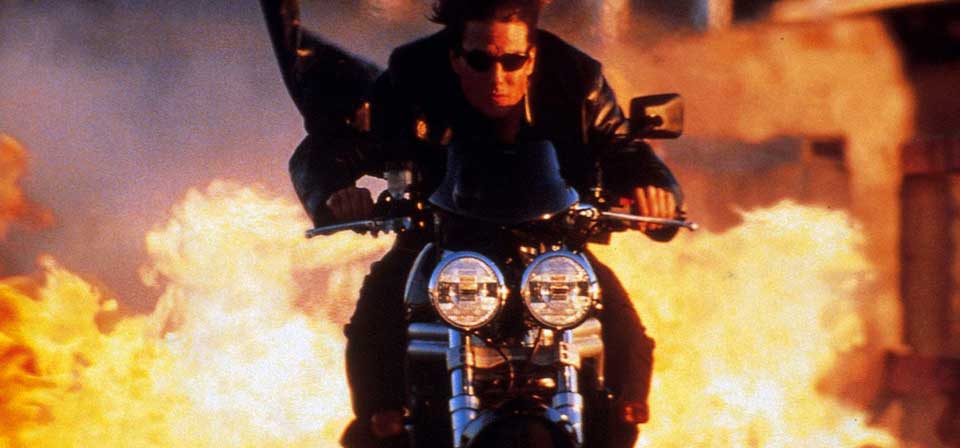
Mission: Impossible II (2000)
This second Mission: Impossible film has almost as little to do with the 1996 blockbuster original as the latter had with the classic TV series whose name it happened to share.
Memento (2001)
This device — unfairly dismissed by some critics as a mere gimmick — creates an experience that in one way resembles that of the protagonist, Leonard Shelby (Guy Pearce). Leonard suffers from a unique trauma-related condition that prevents him from retaining new memories. It’s amnesia in reverse: The amnesiac remembers only his life after his trauma; Leonard remembers only his life before. He knows his name, his past history, everything — up to a point. The last thing he remembers is failing to prevent the rape and murder of his wife.
The Fugitive (1993)
Ford exudes decency in the role of the innocent man wrongly accused, as Kimble throughout the movie consistently goes out of his way to help other people at his own expense, regularly risking capture and even death for the sake of others. Best known for playing confident, capable action heroes in the Indiana Jones and Star Wars movies, Ford is also remarkably persuasive in the role of the unlikely action hero — the unassuming, nonphysical, white-collar professional who isn’t used to swashbuckling (a role he played also in Frantic and Air Force One).
Frequency (2000)
This is a film about the legacy of fatherhood and the inheritance of sonship, about the unbreakable connection and the unbridgeable gap between one generation and the next. It is a celebration of masculinity, but it contemplates how men relate to women as an index of their manhood.
Die Hard (1988)
Along with Star Wars and Raiders of the Lost Ark, John McTiernan’s Die Hard defined a generation of action-adventure movies.
Recent
- Benoit Blanc goes to church: Mysteries and faith in Wake Up Dead Man
- Are there too many Jesus movies?
- Antidote to the digital revolution: Carlo Acutis: Roadmap to Reality
- “Not I, But God”: Interview with Carlo Acutis: Roadmap to Reality director Tim Moriarty
- Gunn’s Superman is silly and sincere, and that’s good. It could be smarter.
Home Video
Copyright © 2000– Steven D. Greydanus. All rights reserved.